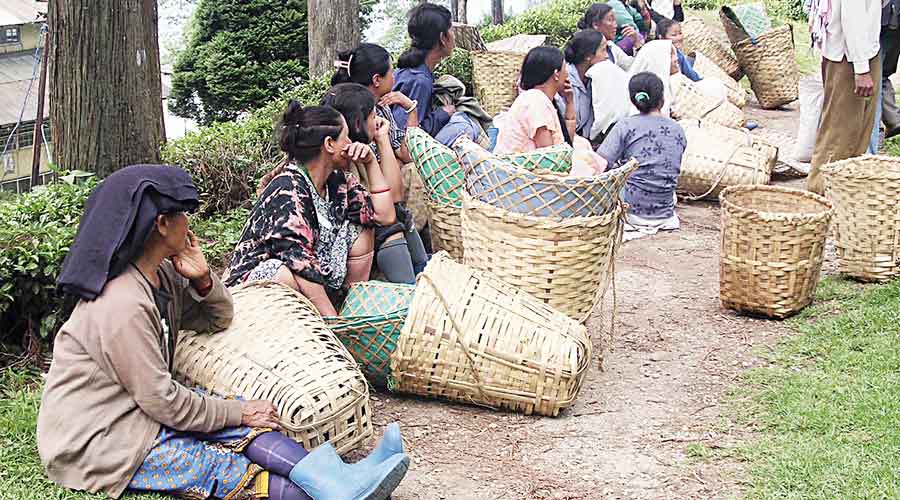A major controversy centred around land rights is brewing in the Darjeeling hills after a tea garden decided not only to terminate the services of an employee but also directed her to leave the estate by March-end.
Hemanti Ekka, a sub-staff member of Lower Fagu tea garden in the Gorubathan block of Kalimpong district, was asked to leave the estate before March 26. The practice of asking workers no longer employed in the garden to leave the area had become a rarity after such instances had created huge unrest in the region before the 1980s.
Unions of tea garden workers in the hills, cutting across political lines, have strongly protested the Lower Fagu tea garden management’s decision.
“The workers have been living in the tea garden for generations. In fact, their family tree in the tea garden can be traced to the 1840s when India had not even existed as a country. These people are now being told to leave the villages and we vehemently protest the decision,” said J.B. Thapa, working president of the Hill Terai Dooars Plantation Workers’ Union, which is affiliated to the Bharatiya Gorkha Prajatrantik Morcha.
Jobs in tea gardens and cinchona plantations are handed to the next of kin of labourers and this is how tea gardens get their supply of workers even though absenteeism is as high as 40 per cent nowadays.
“Just recently, the state government distributed land rights to hundreds of landless people in the rest of Bengal. The government must look into the demand of land rights for tea and cinchona plantation workers,” said another union leader.
The unions affiliated to the Gorkha Janmukti Morcha and the Communist Party of Revolutionary Marxists have also raised protests.
Sujoy Mukherjee, the general manager of Lower Fagu, said the management was being blamed for no reason by the unions instead of addressing core issues.
According to the management, Ekka had first asked for permission to build a house by availing herself of a government-funded scheme. “But she built a concrete house on her own without permission and discarding repeated notices. Tea garden land belongs to the government. If they get permission from the government, we have nothing to say. But we cannot go against the rules and regulations that govern us,” said Mukherjee.
The management was also of the opinion that there was a repeated “breach of trust” from the worker as frequent directives from the management had gone unheeded.
Union leader Tamang, however, said: “The tea garden management does not build houses or even provide statutory benefits to labourers. When the workers want to build better houses on their own, they are being evicted. This is unacceptable.”
The larger narrative of the management revolves around the fact that if such a practice is allowed, then other alternative structures like homestays and business activities might supersede tea-related works in the garden. “If the worker wants to construct a tin-roofed home and not a concrete structure, the issue could be looked into,” a source in the management said.
“Of 535 labourers in the garden, not more than 390 attend work. The rest are engaged in other economic activities,” said Mukherjee. The manager was trying to underline the fact that the management, too, cannot sit back and allow the core industry to die.
Sources said the Kalimpong district administration would hold a meeting on Saturday to discuss the issue.










